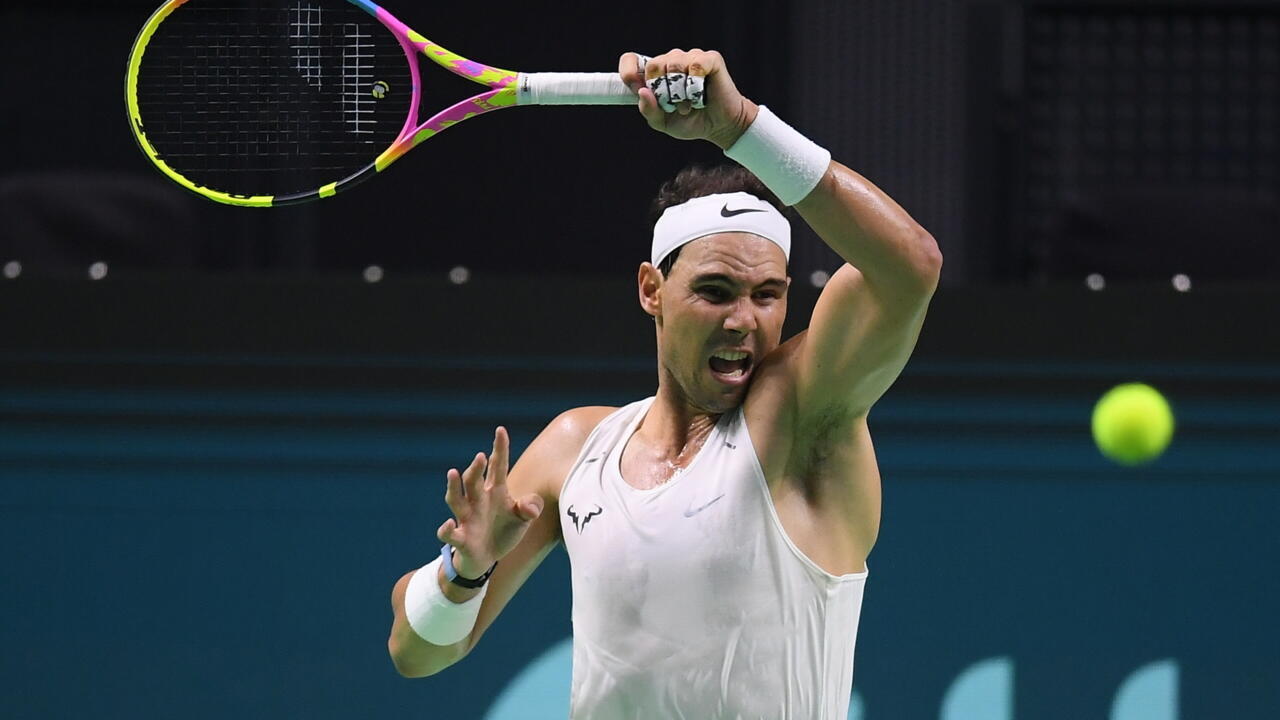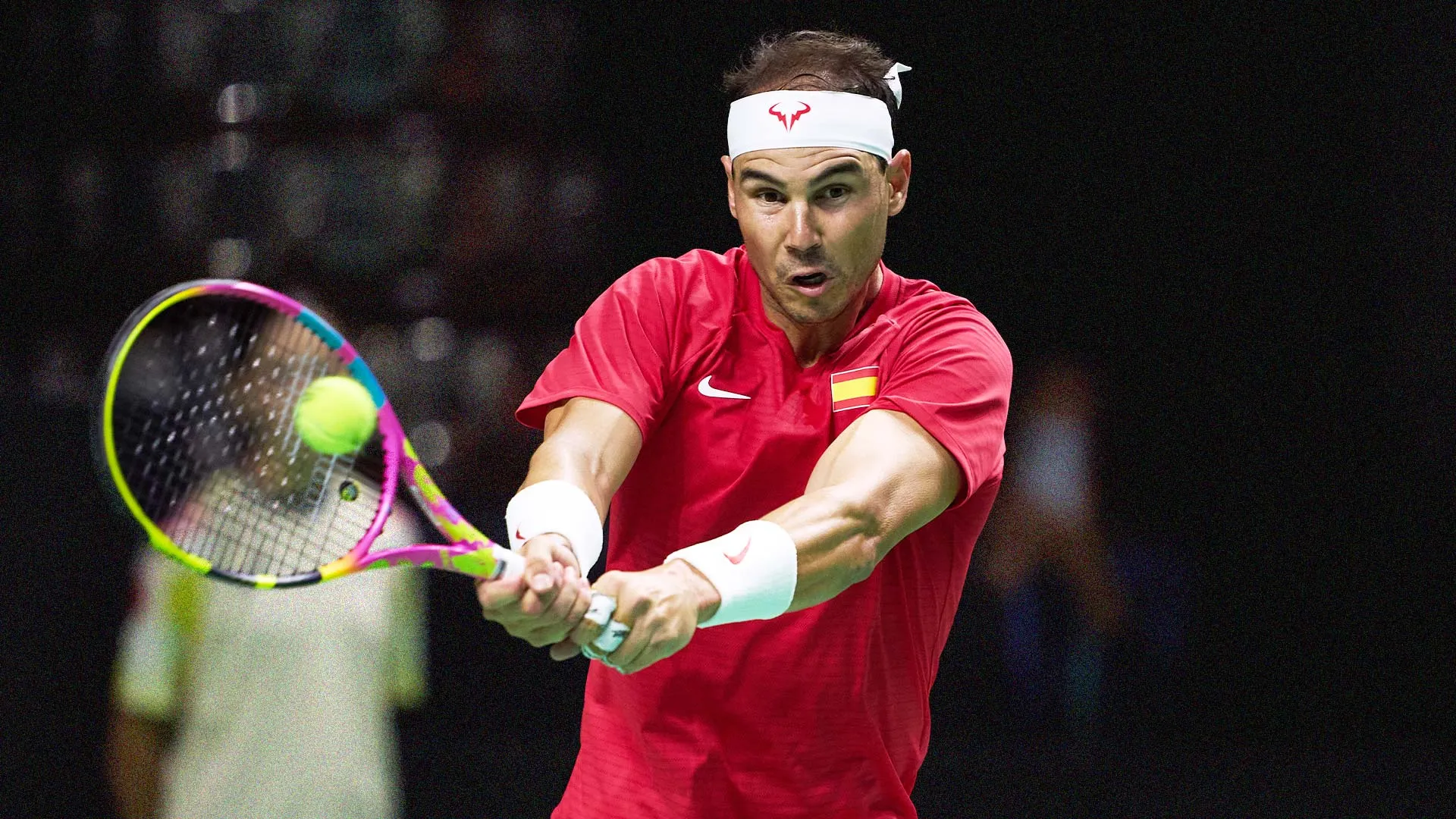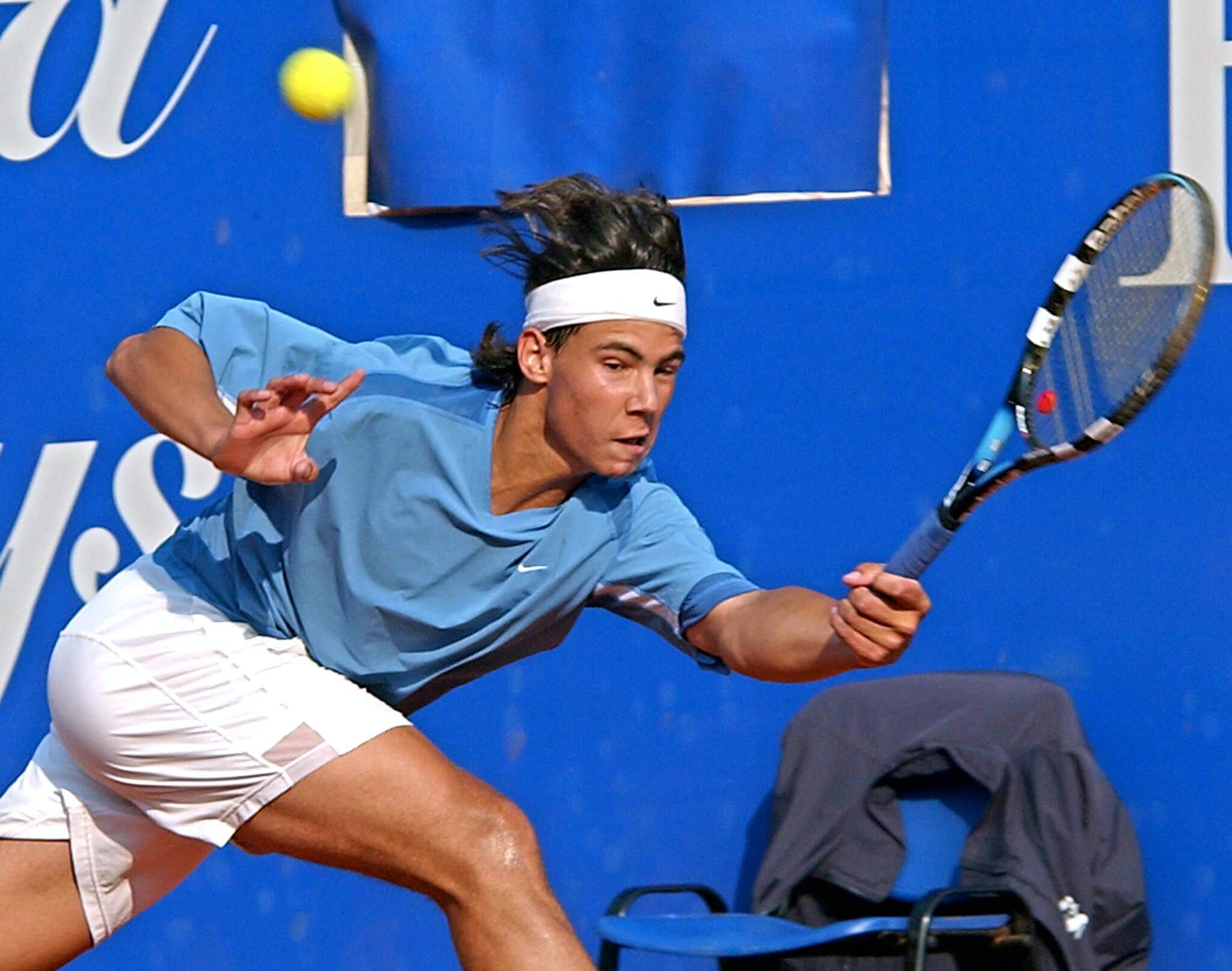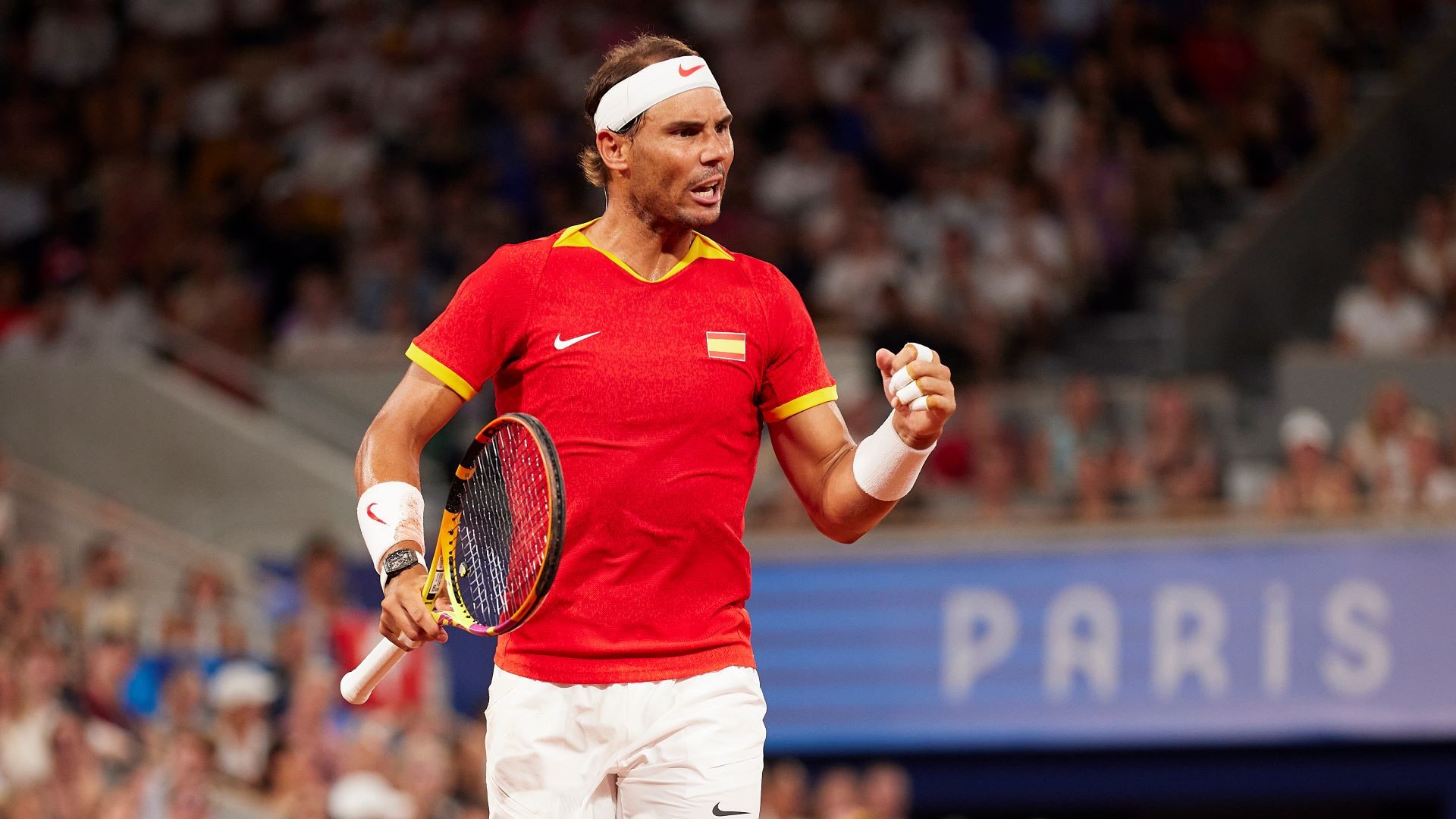Rafael Nadal, a name synonymous with resilience and mastery on the tennis court, has officially hung up his racket. His retirement marks the end of an era filled with spectacular highs and challenging lows, particularly the numerous injuries that punctuated his illustrious career. As we reflect on Nadal’s journey, it’s evident that his battles off the court were just as formidable as those on it.

The Onset of Chronic Challenges: Early Career Setbacks
Nadal’s tryst with injuries began early in his career, immediately following his breakout season in 2005. Diagnosed with Muller-Weiss Syndrome—a rare, degenerative foot condition—he missed the 2006 Australian Open and faced ongoing challenges that impacted his play. Yet, Nadal’s spirit remained unbroken, demonstrating early on his ability to overcome adversity.
The Spaniard’s resilience was further tested in 2009 when knee problems surfaced during the ABN Amro Open final in Rotterdam. This injury forced him to withdraw from defending his title at Wimbledon, a decision that no doubt pained the competitive athlete. Yet, Nadal rebounded spectacularly by claiming the other three Grand Slams in 2010, a testament to his unyielding determination and skill.
Repeated Setbacks and Remarkable Comebacks
Nadal’s career trajectory was often a cycle of injury and incredible comeback. In 2012, another knee injury prematurely ended his season, but by 2013, he was back, winning 75 of 82 matches and securing two more Grand Slam titles. His ability to return to form time and again endeared him to fans worldwide and cemented his reputation as one of the sport’s greats.

However, 2016 brought new challenges with a severe wrist injury during the Madrid Open. This led to another series of withdrawals, including the French Open and Wimbledon, underscoring the relentless nature of his physical trials. Yet, Nadal’s 2017 season dispelled any doubts about his longevity as he triumphed at both the French and US Opens.
The Lingering Shadow of the Foot Injury
One of Nadal’s most persistent issues was his foot injury, first diagnosed in 2005 and re-emerging significantly in 2021. This injury forced him to cut his season short, withdrawing from the US Open among other tournaments. Despite the grim prognosis early in his career, Nadal’s optimism never wavered. He confidently stated, “I’ve been able to have a career that I never dreamed about so I am confident I will recover again, and if the foot is better, I am confident that my tennis and my mentality will be there again soon.”
True to his word, Nadal made a stunning comeback in 2022, claiming victories at the Australian and French Opens and reaching the Wimbledon semifinals. His ability to return from adversity was nothing short of miraculous, showcasing not just his skill but an indomitable spirit.

The Final Curtain: A Hero’s Goodbye
Despite a heroic fight, Nadal’s body could no longer keep pace with his heart. After suffering a hip injury at the 2023 Australian Open, which led to surgery, Nadal faced a year of sporadic competition. His final professional appearance came at the 2024 Davis Cup Finals, a poignant end to a career defined as much by its challenges as its triumphs.
Rafael Nadal’s career is a compelling narrative of triumph, tenacity, and the relentless pursuit of greatness. His journey underscores not just the physical demands of professional tennis, but the mental and emotional resilience required to compete at the highest levels. As Nadal transitions from the courts to the next chapter of his life, his legacy as one of the sport’s greatest fighters remains indelibly etched in the annals of tennis history.

I am a writer with a passion for technology and gaming. I write about a variety of subjects, including Esports, Games, Shows, and Sports. I create engaging and informative content for Hiptoro.

